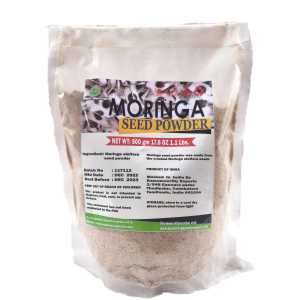Organic vs Non-Organic Moringa Products: Which Should You Buy?
Moringa, often called the “Miracle Tree,” has gained worldwide recognition for its remarkable nutritional profile and health benefits. Available in forms like powders, capsules, teas, and oils, Moringa is now a staple in health-conscious households. But when shopping for Moringa products, one question looms large: organic vs non-organic Moringa — which is better?
This article explores the key differences between organic and non-organic Moringa, their impact on health, environment, and your wallet, to help you make the best choice.
What is Organic Moringa?
Organic Moringa is grown without the use of synthetic pesticides, herbicides, or chemical fertilizers. Certified organic farms also follow sustainable farming practices, which help maintain soil health and biodiversity.
Key Features:
- No synthetic chemicals
- Non-GMO
- Grown on certified organic farms
- Often tested for heavy metals and contaminants
What is Non-Organic Moringa?
Non-organic Moringa is typically cultivated using conventional agricultural methods, which may include chemical pesticides or fertilizers. While it can still be nutritious, the lack of organic certification raises questions about long-term safety and sustainability.
Key Features:
- May involve chemical inputs
- Not required to undergo rigorous testing
- Often cheaper than organic alternatives
Health Implications
Organic Moringa:
- Purity & Safety: Free from harmful pesticide residues
- Higher Antioxidant Content: Studies suggest organically grown plants may have slightly higher antioxidant levels
- Reduced Risk of Contaminants: Especially important for products consumed regularly or in large quantities
Non-Organic Moringa:
- May Contain Residues: Trace amounts of chemicals might remain on the leaves or powder
- Possible Heavy Metal Contamination: Some non-organic sources from regions with lax regulations may contain unsafe levels of heavy metals
Environmental Impact
- Organic Farming: Promotes biodiversity, uses natural compost, and avoids soil depletion.
- Non-Organic Farming: May lead to soil erosion, water pollution, and a reduction in beneficial insects due to chemical use.
If environmental sustainability matters to you, organic Moringa is the clear winner.
Price Considerations
Organic Moringa typically costs more due to:
- Stricter farming and certification standards
- Smaller-scale production
- Rigorous testing processes
However, many consumers view the higher price as a worthwhile investment in long-term health and environmental protection.
How to Choose the Right Moringa Product
When deciding between organic vs non-organic Moringa, consider the following:
| Factor | Organic Moringa | Non-Organic Moringa |
|---|---|---|
| Pesticide-Free | ✅ | ❌ |
| Certified | ✅ | ❌ |
| Price | Higher | Lower |
| Environmental Impact | Low | High |
| Quality Assurance | High | Variable |
Final Verdict: Should You Buy Organic or Non-Organic Moringa?
If you’re looking for the purest, most sustainable option with minimal health risks, organic Moringa is the better choice. It may cost a little more, but the benefits often outweigh the price difference—especially if you’re incorporating Moringa into your daily health routine.
However, if budget is a major concern and you’re purchasing from a reputable source with third-party testing, high-quality non-organic Moringa can still be a viable option.
Conclusion
Whether you choose organic or non-organic Moringa, ensure you’re buying from trustworthy brands with transparent sourcing and testing. For the health of your body and the planet, organic Moringa often comes out ahead in the long run.